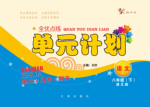题目内容
In every country, there are thousands of people who want to help out. Many join organizations run (管理) by their governments, for example, the Peace Corps in the United States and Voluntary Service Overseas in Britain. Since the powerful (猛烈的) earthquake took place in Sichuan, more than 200 thousand volunteers across China have been helping there! They do all kinds of work or come up with ways to help improve life. Some offer their professional skills for free. Others have no qualifications (资历), but they love to work hard to help.
One of the most famous volunteers in the world was Mother Teresa. She could be the best volunteer because she gave her life to helping the poorest people of Calcutta. She helped the homeless, cared for the sick, gave out food, and became the mother of those without families.
Now more and more teenagers actively look for volunteering opportunities, too. They volunteer because they think it will be fun or they will learn something. They also like the idea of being helpful to others, even if it is just handing out books for the teacher. As they get older, these reasons are still the same, but there are other important reasons for volunteering such as learning on-the-job, getting work experience, and improving their social life.
All volunteers bring joy to the people they help in so many ways. They might read books to the blind, fix up broken homes, find ways to get water for villages. Could you be a volunteer? What kind of volunteer work could you do? There is someone in the world who needs you.
小题1:The Peace Corps is __ in the United States.
小题2:The word those in the passage means __ .
小题3:What is NOT the reason for teenagers to be volunteers according to the passage?
小题4:Which of the following is true according to the passage?
小题5:What is the main idea of this passage?
One of the most famous volunteers in the world was Mother Teresa. She could be the best volunteer because she gave her life to helping the poorest people of Calcutta. She helped the homeless, cared for the sick, gave out food, and became the mother of those without families.
Now more and more teenagers actively look for volunteering opportunities, too. They volunteer because they think it will be fun or they will learn something. They also like the idea of being helpful to others, even if it is just handing out books for the teacher. As they get older, these reasons are still the same, but there are other important reasons for volunteering such as learning on-the-job, getting work experience, and improving their social life.
All volunteers bring joy to the people they help in so many ways. They might read books to the blind, fix up broken homes, find ways to get water for villages. Could you be a volunteer? What kind of volunteer work could you do? There is someone in the world who needs you.
小题1:The Peace Corps is __ in the United States.
| A.a city | B.an organization | C.a volunteer | D.a school |
| A.the homeless | B.the sick | C.the poor | D.the kids |
| A.They want to make more friends. |
| B.They want to be helpful. |
| C.It helps them get work experience. |
| D.It can improve their social life. |
| A.Volunteers need qualifications. |
| B.Volunteers offer their help without any pay. |
| C.Young kids can’t be volunteers. |
| D.Some volunteers bring joy to others. |
| A.The world needs volunteers. |
| B.Mother Teresa was a great volunteer. |
| C.Volunteers do all kinds of work. |
| D.There are different ways of volunteering. |
小题1:B
小题2:D
小题3:A
小题4:B
小题5:A
小题1:根据文章内容In every country, there are thousands of people who want to help out. Many join organizations run (管理) by their governments,可知答案为B
小题2:根据文章内容可知答案为D
小题3:根据文章内容but there are other important reasons for volunteering such as learning on-the-job, getting work experience, and improving their social life.
可知答案为A
小题4:根据文章内容All volunteers bring joy to the people they help in so many ways. They might read books to the blind, fix up broken homes, find ways to get water for villages. Could you be a volunteer? W可知答案为B
小题5:根据文章内容大意可知答案为A

练习册系列答案
 全优点练单元计划系列答案
全优点练单元计划系列答案
相关题目
